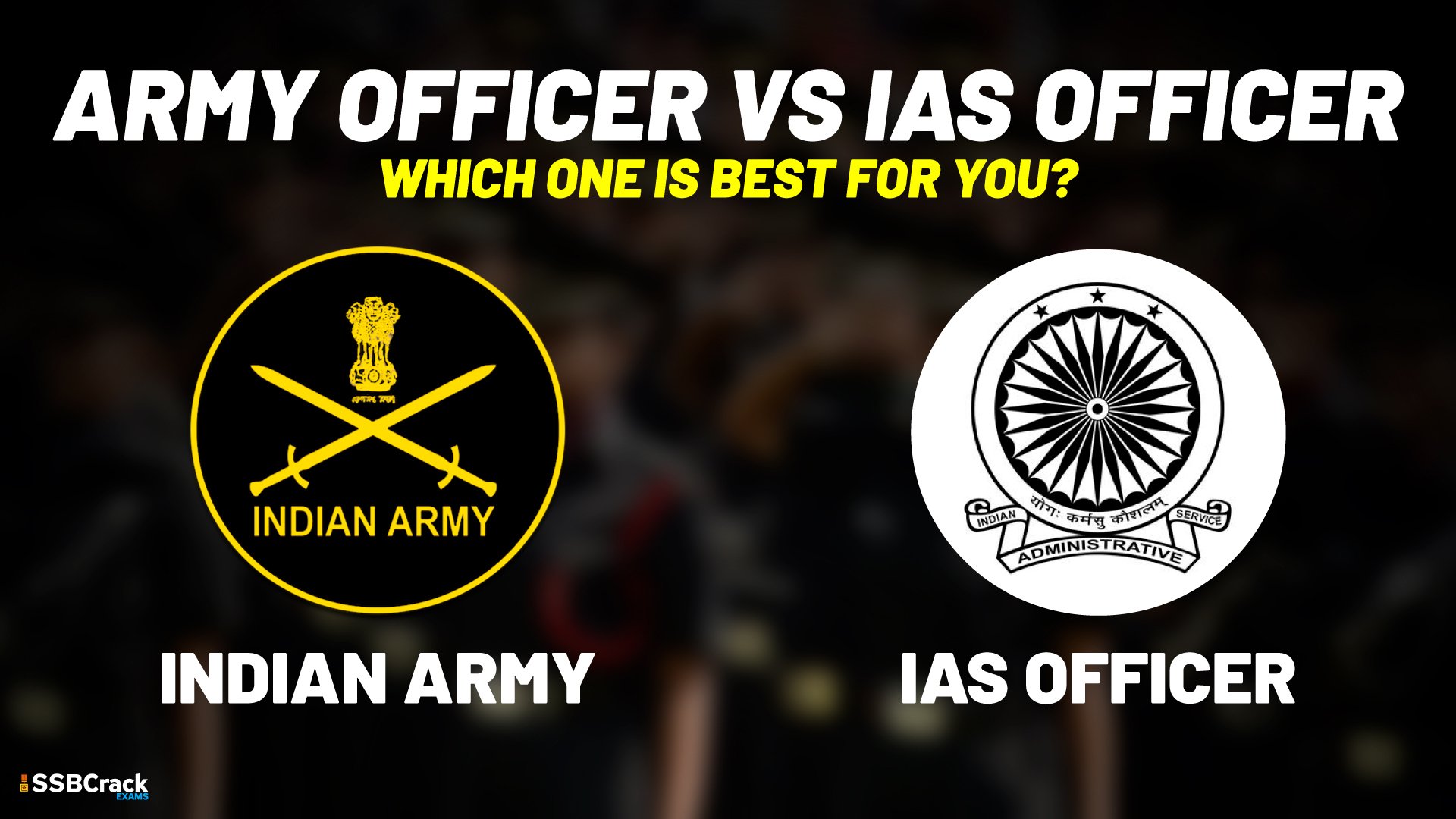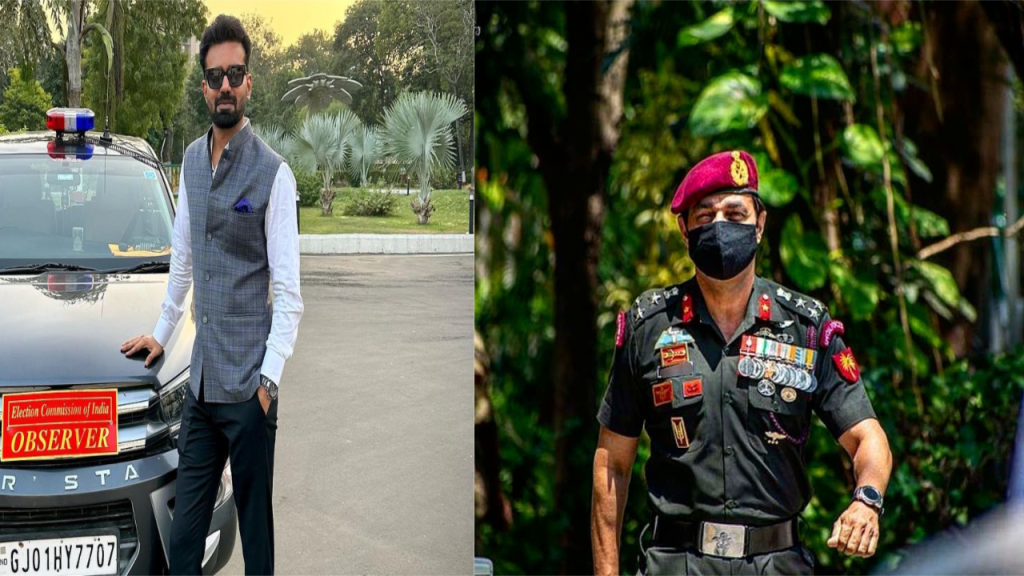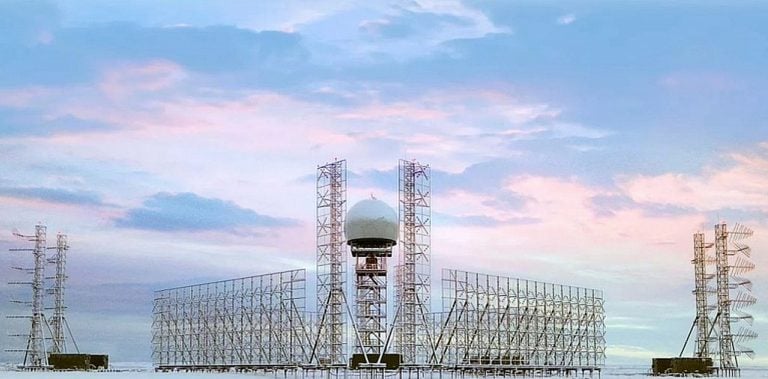Choosing between a career as an Army Officer and an IAS Officer (Army Officer vs IAS Officer) is a significant decision that many aspirants face in India. Both professions are highly esteemed and come with their own sets of challenges and rewards. This article aims to provide a comprehensive comparison of these two prestigious paths, helping you understand the nuances of each and guiding you in making an informed choice.
Understanding the Roles
Army Officer
Army Officers play a crucial role in defending the nation. They are responsible for leading troops, strategizing missions, and ensuring the safety of the country’s borders. The responsibilities include:
- Leadership: Commanding and training soldiers.
- Strategic Planning: Developing and executing military operations.
- Crisis Management: Responding to emergencies effectively and efficiently.
IAS Officer
On the other hand, IAS Officers are at the helm of India’s administrative machinery. They oversee the implementation of government policies and maintain law and order. Key responsibilities include:
- Policy Implementation: Ensuring that government schemes are executed effectively.
- Public Administration: Managing various departments and services.
- Crisis Management: Handling administrative challenges and emergencies.
Selection Process
Army Officer Selection
To become an Army Officer, candidates must go through a rigorous selection process that includes:
- Written Examination: Clearing the UPSC or other relevant exams.
- SSB Interview: A comprehensive interview assessing psychological and physical fitness.
- Medical Examination: Ensuring candidates are physically fit for military service.
- Training: Completing 18-24 months of training at military academies.
IAS Officer Selection
The path to becoming an IAS Officer is equally challenging, involving:
- Civil Services Examination: Conducted by the UPSC, this includes three stages: Preliminary, Mains, and Interview.
- Training: Successful candidates undergo a year of training at the Lal Bahadur Shastri National Academy of Administration.
Training Regimens
Army Officer Training
Army training is intense and focuses on physical endurance, strategic thinking, and leadership skills. Key aspects include:
- Physical Training: Rigorous physical fitness routines.
- Tactical Training: Learning combat strategies and operations.
- Leadership Development: Cultivating skills to lead teams effectively.
IAS Officer Training
IAS training emphasizes administrative skills and governance. It includes:
- Administrative Training: Understanding the workings of government departments.
- Field Training: Real-world exposure to various administrative challenges.
- Policy Formulation: Learning how to design and implement policies.
Pay Scale Comparison
Army Officer Pay Scale
Army Officers enjoy a competitive salary structure, which includes:
- Basic Pay: Varies based on rank and years of service.
- Military Service Pay (MSP): An additional allowance for serving in the military.
- Other Allowances: Housing, travel, and medical allowances.
IAS Officer Pay Scale
IAS Officers also receive attractive compensation, which includes:
- Basic Pay: Determined by the pay commission, it increases with seniority.
- Allowances: Various allowances similar to those of Army Officers but without MSP.
Pay Scale – Army Officer vs IAS Officer
When it comes to pay, military officers have an advantage over IPS and Civil Service officers because of the additional allowance known as Military Service Pay (MSP). The equivalent ranks between Tri-Services, Civil Services, and IPS according to their pay scale are as follows:
| Level 10 | Lieutenant | Assistant SP | Assistant Collector |
| Level 10A | Captain | Addl. SP | Sub Collector |
| Level 11 | Major | SP | Collector |
| Level 12/12A | Lt. Colonel | SP | – |
| Level 13 | Colonel | SP | Collector (selection Gd) |
| Level 13A | Brigadier | DIG | – |
| Level 14 | Major General | IG | Secy (state govt.) |
| Level 15 | Lt. Gen (HAG) | ADGP | Principal Secy (state govt.) |
| Level 16 | Lt Gen (Corps Commander) | DG (HAG+) | Addl. Chief Secretary/Spl. Chief Secretary |
| Level 17 | Lt Gen (Army Commander) | DGP (HoPF) | Chief Secretary |
| Level 18 | General | – | Cabinet Secretary |
Recognition and Authority
Army Officer Recognition
Army Officers are celebrated for their service and often receive public admiration. Their roles are critical in maintaining national security, which adds to their prestige. However, their authority is primarily confined to military operations.
IAS Officer Recognition
IAS Officers hold significant authority in administrative matters. They can influence policy decisions and have a broader impact on society. Their recognition often comes from their roles in governance, making them powerful figures in the public eye.
Work-Life Balance
Army Officer Work-Life Balance
The life of an Army Officer can be demanding, often requiring long hours and deployment in challenging conditions. However, it also offers unique experiences, camaraderie, and a strong sense of purpose.
IAS Officer Work-Life Balance
IAS Officers typically have more predictable hours, but the pressure of decision-making and accountability can be intense. They often have to manage a multitude of responsibilities, leading to a different kind of stress.
Job Security and Stability
Army Officer Job Security
Army Officers enjoy job security due to the nature of military service, which is less susceptible to economic fluctuations. However, they must be prepared for the inherent risks of military life.
IAS Officer Job Security
IAS Officers also benefit from high job security, with a well-defined career progression. Their roles are protected by government policies, ensuring stability in their careers.
Challenges Faced
Challenges for Army Officers
- Physical and Mental Strain: The demanding nature of military service can take a toll on health.
- Frequent Relocations: Officers may be posted in different locations, affecting personal life.
Challenges for IAS Officers
- Bureaucratic Challenges: Navigating the complexities of government systems can be frustrating.
- Public Scrutiny: IAS Officers are often under the public eye, leading to immense pressure.
Which Path is Right for You?
Choosing between an Army Officer vs IAS Officer depends on your personal interests, skills, and career aspirations. Consider the following:
- Passion for Service: If you have a strong desire to serve the nation physically and lead troops, the Army might be your calling.
- Interest in Governance: If you are inclined towards administration and policy-making, the IAS could be the right fit.
Conclusion
Both the Army and IAS offer rewarding careers that contribute significantly to the nation. Your choice should align with your personal values, career goals, and the type of work environment you thrive in. Whether you choose the disciplined life of an Army Officer or the administrative challenges of an IAS Officer, both paths promise a fulfilling journey dedicated to serving the country.
FAQs
1. Is the training for Army Officers more rigorous than that for IAS Officers?
Yes, Army training is generally more physically demanding, while IAS training focuses more on administrative skills.
2. IAS vs Army, Which career offers better job security?
Both careers offer high job security, but the nature of the roles differs.
3. Can I switch from Army to IAS or vice versa?
While it’s challenging, some individuals have successfully transitioned between the two fields.
4. IAS vs Army, What factors should I consider when making my choice?
Consider your interests, strengths, and the type of work-life balance you desire.
5. IAS vs Army, How do the pay scales compare in the long run?
Both careers offer competitive salaries, but IAS Officers may have more opportunities for higher pay due to promotions.








